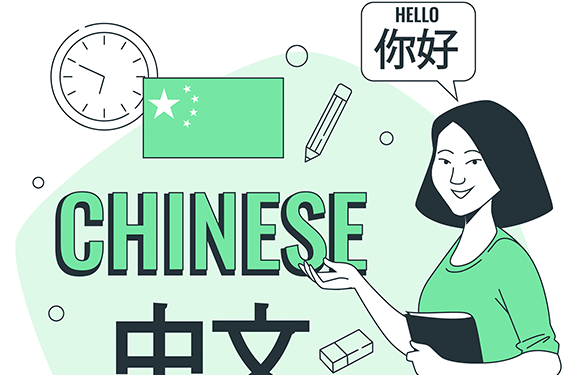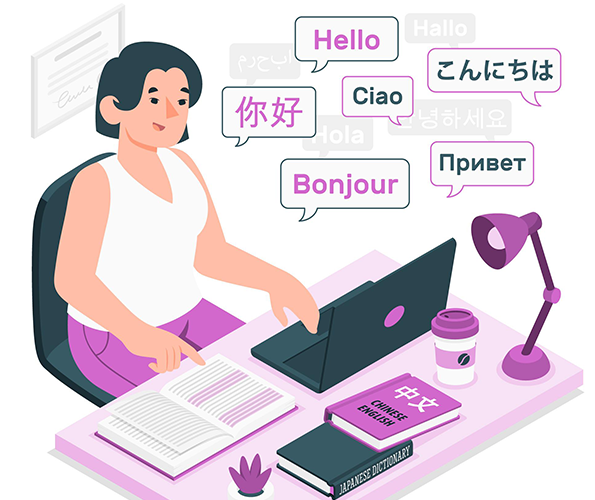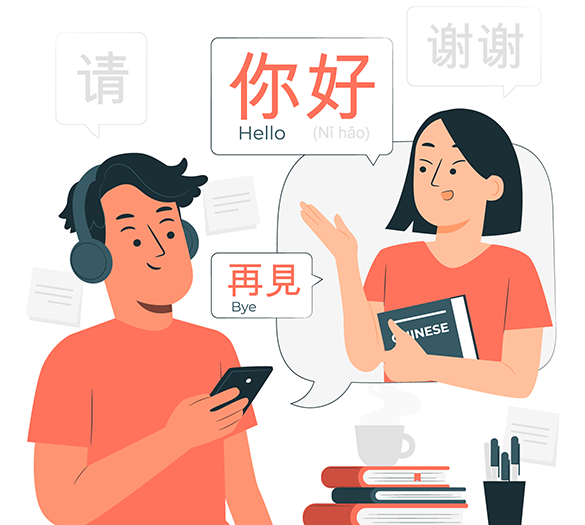Rosetta Translation provides a full range of professional Chinese translation services to companies in London and worldwide. Our office in Shanghai, which we established in 2008, gives us an invaluable advantage in delivering high-quality translations in and out of Chinese.

Our company specialises in a wide range of sectors. We have particular expertise in legal, financial, technical and medical translation services.
We guarantee a consistently excellent quality of Chinese translation in each of these various fields by making sure we assign every translation to the most appropriate specialised team of highly qualified Chinese translators, proofreaders and editors.
Having our own office in the heart of the former French Concession in Shanghai, we are particularly known for our expertise in professional Chinese transation services. Our local Shanghai colleagues regularly provide services and advice that go beyond the strict realm of translation services. Thus, we have an active practice in Chinese media monitoring (mostly for foreign brands), and provide advice on the suitability of certain marketing translations for the Chinese market.
We also provide Chinese interpreting services in London, the UK, China and worldwide.
For a free instant quote, please contact us at any of our local offices in London, Shanghai, New York, Paris or Luxembourg.
请点击这里查看有关伦敦中文翻译的信息。


Rosetta Translation is one of only a handful of translation agencies that have achieved the prestigious ISO 9001:2015 certification as well as the DIN EN 15038 norm, the only certification that specifically relates to translation services. Our customers can therefore be completely sure that the quality of our translations is consistently high.
Combined with our use of translation technology and our extraordinary flexibility as regards client needs, this results in the professional and reliable translation service that our regular customers value.
Our translations can be certified, notarised and legalised to meet your exact requirements. We can provide translation certificates in English or in Chinese, and we can issue certified translations from our offices in Shanghai, London or the US, depending purely on our clients’ requirements.
Our clients include both Western companies that require translations into Chinese or vice versa, such as American Express and large Chinese companies that have significant business interests abroad, such as the government-owned COSCO shipping company.








We use experienced, native translators, all of whom specialise in a number of different areas of translation to give the best possible results for our customers. We then make sure the formatting is correct, providing an overall final translation of excellent quality.
Chinese (中文) is the world’s biggest language in terms of native speakers. It has a number of dialects, the most of which are Mandarin, Wu and Cantonese. It is steadily increasing as a major player in Global business markets. Worldwide, Mandarin Chinese has 850 million native and second-language speakers.
There are two notable variations in the written systems: Simplified(简体) and Traditional Chinese(繁體). We can provide translations in both character sets.
At Rosetta Translation, we cater for translating assignments into and out of all dialects of Chinese and have in our team at least one translator for each dialect. Our native translators have an in-depth knowledge not just of the language in question, but also have the ability to tailor translations to various communities and registers.
Rosetta, through its office in Shanghai, also has particular expertise in Chinese patent translation.
Whether your Chinese-English translation assignment is complex or technical or more basic in style, Rosetta Translation always has experienced translators on hand to deliver, with expertise in a number of areas, from technical computer jargon to pharmaceutical industry terminology.
All our Chinese to English translation assignments are obviously carried out by native English speakers with relevant qualifications.
For written translation, the choice is between translation into Simplified or Traditional Chinese.
For interpreting (or ‘oral translation’), the choice is between Mandarin and Cantonese as main dialects, but there are other possibilities, too.
All these options are explained in more detail below.
It depends on where in the world your target audience is. For the People’s Republic of China (Mainland China), Singapore and Malaysia, you need a translation in Simplified Chinese characters, for everywhere else, including Hong Kong, Macao, Taiwan and most overseas Chinese communities, you need Traditional Chinese.
The background to this is that, as the name suggests, Chinese was written in Traditional Chinese characters first. After the founding of the People’s Republic of China, their government decided, in the 1950s and 1960s, to implement a very substantial campaign to simplify the writing of Chinese characters, with the very sensible aim of improving literacy by making it easier to read and write characters. Singapore and Malaysia then followed the PRC’s lead, and introduced the same simplified characters a little later.
Importantly, Hong Kong, Macao and Taiwan have retained the traditional characters. Historically, so have most overseas Chinese communities, including in Europe and North America. With increasing migration from Mainland China to some of these overseas communities, this situation is in flux. If you are unsure about what characters to translate into, do not hesitate to ask. Rosetta has an office in Shanghai, China, and we will be able to give you detailed case-by-case advice.
It is perhaps interesting to note that whether simplified Chinese characters are actually easier to learn remains a very open question. One main reason is that the traditional characters often retain much more of the connection with the object described, greatly aiding learning.
It is also worth noting that ‘Mandarin’ is not a written Chinese language option, but rather the largest of the Chinese dialect groups, and also the dialect that was chosen as the basis for the national standard in China, partly because it is the dialect of the area around the capital Beijing.
For Chinese interpreting, you need to know the exact Chinese dialect of the speaker. This is crucial, because many Chinese dialects are not, or only very faintly, mutually intelligible.
In the People’s Republic of China, the dominant dialect is Mandarin (with an estimated 918 MM speakers), followed by Cantonese (or ‘Yue’, if you are a professional linguist, with roughly 84 MM), Wu (the dialect in the area around Shanghai, with 81 MM), Min (centred on the southern province of Fujian, with 74 MM), Hakka with 48 MM, and so on.
Overseas, the proportions are very different, with non-Mandarin dialects being much more prevalent. We cannot stress enough the need to ascertain the correct dialect, as we have seen court cases being disrupted because the elderly key witness only spoke a particular dialect of Min, which wasn’t even very compatible with other Min dialects. We at Rosetta are very happy to help, for example by arranging a call in advance with the person in question to establish what dialect they speak.
Yes, Rosetta accepts both WeChat Pay and Alipay. We know that many Chinese, even overseas, prefer that very simple payment option these days, and we have enabled this through our Shanghai office. Simply tell us when you contact us that you prefer WeChat Pay or Alipay.






What is the UN French Language Day? On 20 March, we once again celebrate UN French Language Day, a global celebration of linguistic diversity and cultural exchange. Created by the United Nations in 2010, this day is to remind us …


© 2025 All Rights Reserved